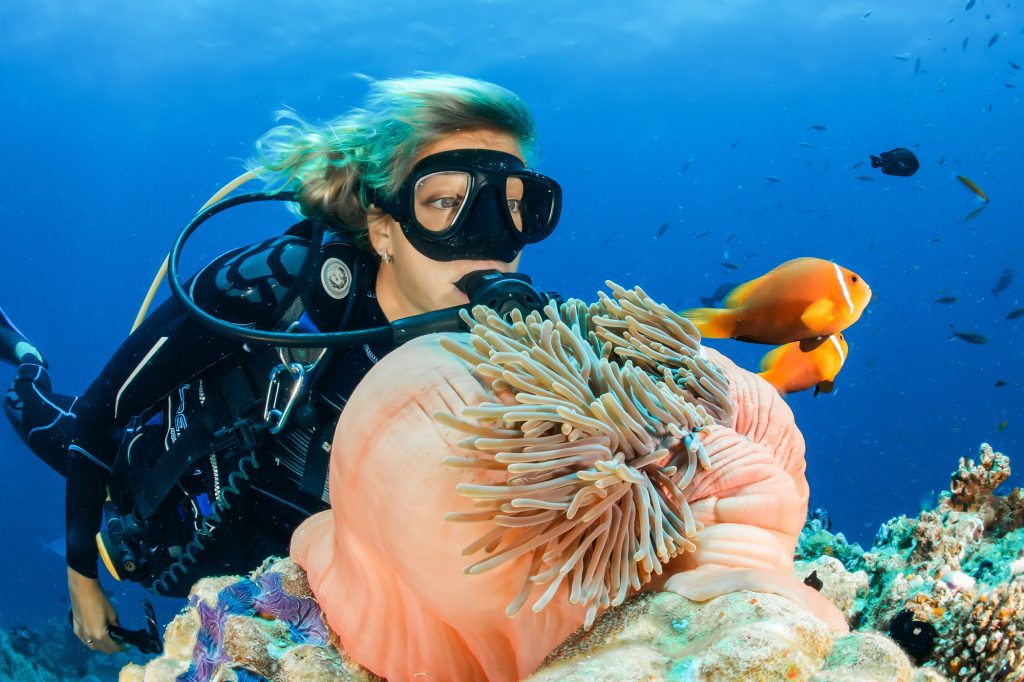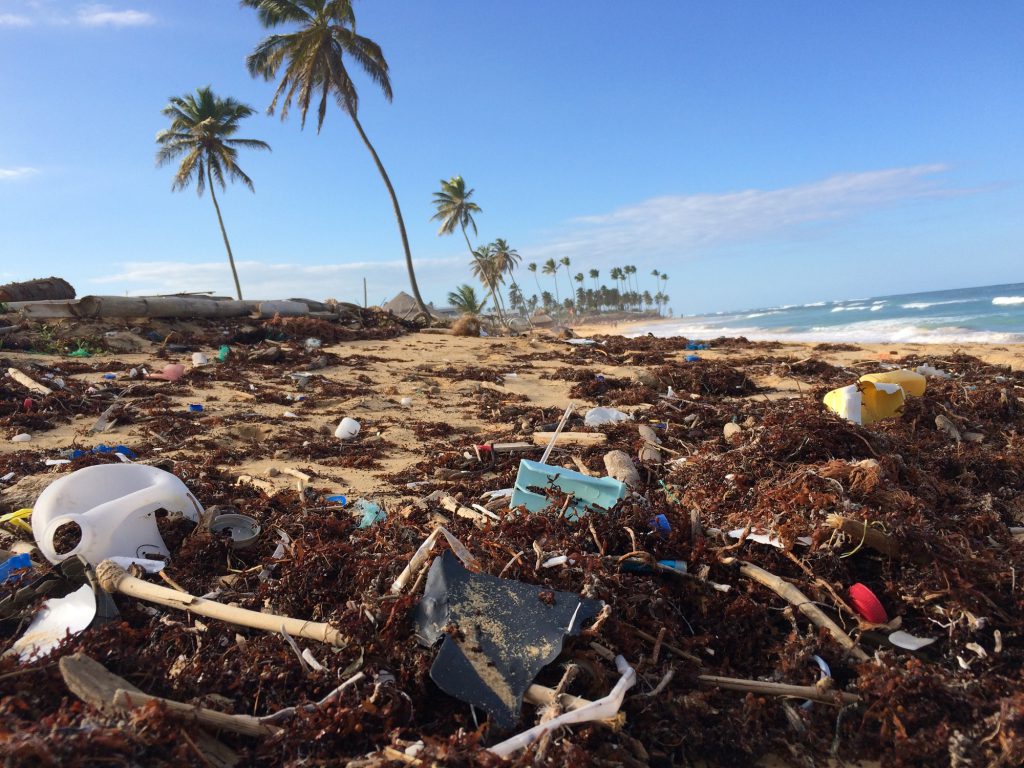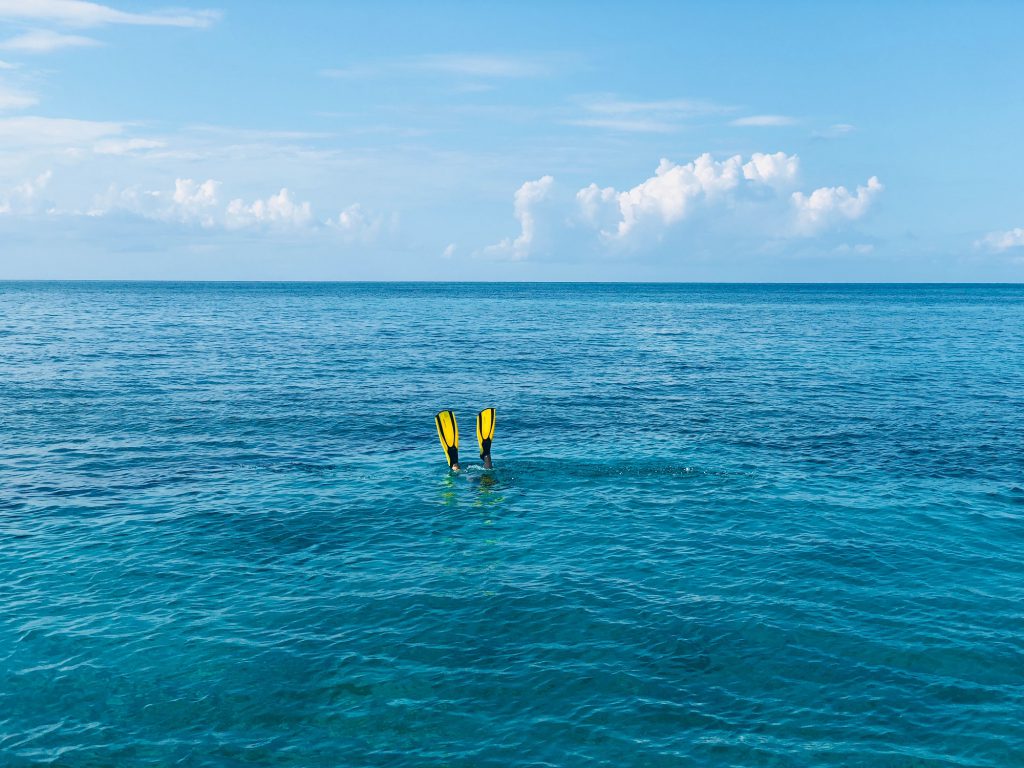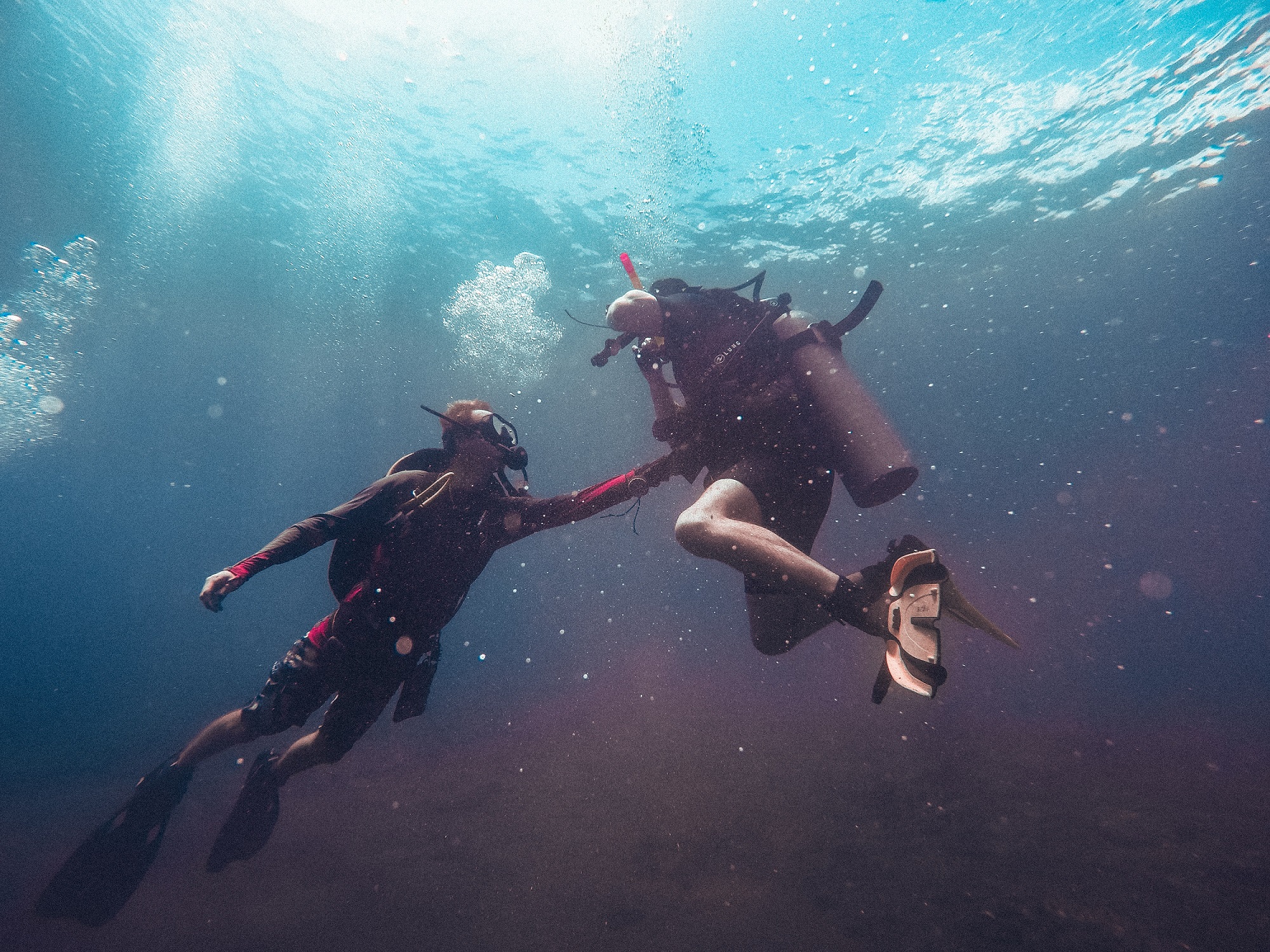In order to celebrate World Ocean Day 2019, we have decided to put together this guide on how to become an environmentally friendly scuba diver. Being a diver is one of the best ways to explore our underwater world, but there can be an impact on the ocean. It is our duty as scuba divers to ensure that we are scuba diving sustainably and not damaging the corals that we have came to see. But how can we ensure this? Read below to find out how.
The only souvenir you need is pictures

As a responsible scuba diver, it is your duty to leave nothing behind and to remove nothing from the dive site. Refrain from picking up a token shell, coral or anything else that might take your fancy when you dive. Even the smallest thing you remove can have an environmental impact. And the same goes for things you could leave behind. Pick up all your rubbish, ensure if you drop some kit you retrieve it and ensure the dive site was as it was when you leave.
Dive locally
The location you choose to dive in will also have an impact. Travelling to locations around the world will add to your carbon footprint and will put a strain on the environment. Choose a local dive site to practise and qualify as one of the main causes of scuba diver damage to marine wildlife is diver inexperience.![]()
Choose a reputable operator
Whether you decide to dive at home or abroad, make sure to pick a tour operator that has a sustainability ethos. Enquire about their anchoring policies, as carelessly dropping an anchor can cause damage to coral reefs. Check if they are accredited by any environmental organisations, and ask them about their diver education practices. The more questions you ask and the further you push for responsible diving, the more likely the industry will change.
Be picky about gear
Did you know, that there isn’t an environmental certification needed for diving equipment? This means that it is fundamental that you, as scuba divers make the correct decisions when sourcing your kit. There are some options to choose battery-less equipment, opting for gear that can be charged by the sun or by movement. You could also opt for rechargeable batteries or if in doubt double check with the diving company to see which environmentally friendly equipment they would recommend.
Do your bit with every dive

You would be surprised at how much rubbish litter our oceans. A clever idea to combat this and to do your bit, even if very small is to pick up a piece of rubbish each time you dive. It can be as simple as a plastic bottle, to a beer can ring. Every time one diver brings back a piece of rubbish, that is one less item that could have a potentially dangerous impact on marine life and their environment.
Watch your fins

Fins can damage the underwater sea bed and sensitive coral reefs. It’s important to practise swimming in your fins before embarking on a dive. Finding a good technique is vital to make sure you leave your dive location untouched. ![]()
If you must hunt, hunt smart
We don’t want to condone or endorse underwater spearfishing. This is something that is essential for some communities who rely on the underwater fish for their staple meal but hunting as a tourist for the thrill of it, isn’t environmentally friendly or responsible.
However, if you are determined to give spearfishing a try, follow the rules and regulations for the region you are hunting in. Do not spear young, endangered or pregnant fish. Know your seasons and follow all advice given from your dive instructor. If you are going to do this, do it smartly and leave as little an impact behind as possible.
Why not ship your scuba equipment to your destination and save time and money on airline baggage fees? Get a quick quote today!
You might also like:
Top 10 Eco-Friendly Destinations to Visit
Top 10 Tips for Eco-friendly Travel






